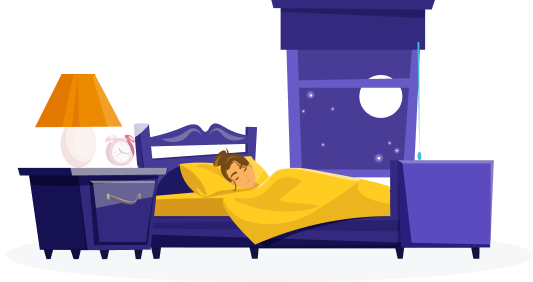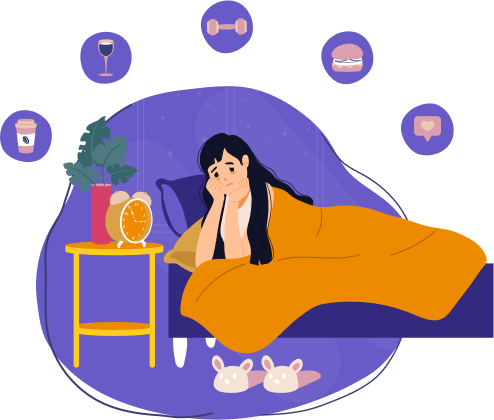



Is Insomnia Different For Everyone?
Insomnia can be presented as difficulty in falling a sleep, maintaining sleep, frequent awakenings leading to unsatisfied sleep.
These symptoms can be identified as:
- Difficulty in falling a sleep- Minutes from lights off to the first 10 minutes of consecutive non-wakefulness
- Maintaining sleep- minutes of wake from falling asleep until the subject stopped trying to sleep for the night and got out of bed for the day


Types of Insomnia
Acute Insomnia
This is a relatively brief episode of insomnia. It can be triggered by a stressful event, such as the loss of a loved one or a significant job or relationship change. Acute insomnia usually lasts less than three months. It usually goes away as you learn to deal with the triggering event. Short-term insomnia, on the other hand, can become chronic insomnia.
Chronic Insomnia
Insomnia that is chronic lasts longer. It occurs when you have difficulty falling or staying asleep at least three nights per week for three months or longer.Chronic insomnia can be caused by a variety of factors. It, like acute insomnia, can be related to stress. However, it can also be caused by disrupted sleep schedules, poor sleep hygiene, mental health conditions, physical or neurological issues, and some medications.




How is Insomnia Treated?

Benefits of Benzodiazepines like Alprazolam, Clonazepam, Lorazepem etc include their effectiveness at inducing sleep and reducing anxiety, however side-effects include their potential for dependence, tolerance, and withdrawal symptoms.
Benefits of Non-Benzodiazepines like zolpidem, zopiclone etc include their effectiveness at inducing sleep and their shorter half-lives, which can reduce the risk of daytime drowsiness, however side-effects include the potential for dependence, tolerance, and rebound insomnia.


Newer Emerging Medicines
New prescription medicine that acts differently i.e. DORA: Dual Orexin Receptor Antagonist are recently approved in India by Drug Controller General of India (DCGI) in 2021. This drug works by temporarily blocking a pathway in your brain that keeps you awake and unlike other sedative hypnotics which depress the central nervous system to induce sleep. Lemborexant has been studied in 2 large randomized, controlled, pivotal trials in a variety of patients with insomnia. It was effective at helping patients with insomnia fall asleep faster and stay asleep longer than those taking placebo.
Reference:
- American Academy of Sleep Medicine. (2017). The treatment of central sleep apnea syndrome, insomnia, and restless legs syndrome/Willis-Ekbom disease in adults. Journal of Clinical Sleep Medicine, 13(2), 307-349.
- Hypnotic drug risks of mortality, infection, depression, and suicide. Dialogues in Clinical Neuroscience, 20(3), 201-215.


